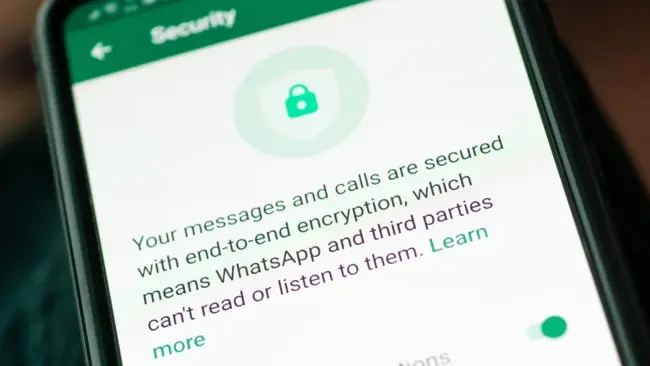WhatsApp has introduced a chat lock feature to protect users’ privacy and make conversations as it protests the UK’s proposed Online Safety Bill (OSB).
In a blog post, parent company Meta said users will be able to make chats "even more private" by hiding them in a password or biometrics-protected folder and blocking notifications from showing the content and sender information contained within those conversations.
“Locking a chat takes that thread out of your inbox and puts it behind its own folder that can only be accessed with your device’s password or biometric, like a fingerprint. It also automatically hides the contents of that chat in notifications,” Meta said.
“We believe this feature will be great for people who share their phones from time to time with a family member, or in moments where someone else is holding your phone at the exact moment an extra-special chat arrives.”
The social media giant is rolling out chat lock now and said there will be additional upgrades and adjustments to improve the feature in the near future.
“Over the next few months, we’re going to be adding more options for Chat Lock, including locking for companion devices, creating a custom password for your chats so that you can use a unique password different from your phone’s,” Meta wrote in a blog post.

It’s me or the OSB
The announcement comes less than a month after WhatsApp CEO Will Cathcart joined the heads of other messaging platforms and signed a letter calling for the UK government to rethink the OSB due to concerns the bill could hinder user privacy.
🆕 privacy feature just dropped 🔒
— WhatsApp (@WhatsApp) May 15, 2023
With Chat Lock, now you can keep your most private and personal conversations under lock and key with a password. pic.twitter.com/NsM5NOka9A
The executives warned that the bill could potentially outlaw end-to-end encryption, which would mean that messages private to the sender and recipient could be read by third parties.
“The online safety bill provides no explicit protection for encryption,” the letter reads, “and if implemented as written, could empower Ofcom to try to force the proactive scanning of private messages on end-to-end encrypted communication services, nullifying the purpose of end-to-end encryption as a result and compromising the privacy of all users."
The OSB, introduced by former UK Prime Minister Boris Johnson, would allow Ofcom to be able to ask the platforms to monitor users for law enforcement and to down on illegal content such as child abuse images and terrorism being shared on the messaging apps.
However, critics including Meta have said scanning for such content would be incompatible with the end-to-end encryption that is common protection offered by messenger apps.
The bill poses an unprecedented threat to the privacy, safety and security of every UK citizen and the people with whom they communicate around the world while emboldening hostile governments who may seek to draft copycat laws.
WhatsApp’s introduction of a chat locking feature appears to demonstrate WhatsApp’s Commitment to protecting privacy within its platform, putting it once again at odds with the UK government’s wish to unlock messaging for law enforcement purposes.
Last month, Cathcart threatened he would rather see WhatsApp leave the UK rather than submit to these requirements, stating that it would be forced to weaken encryption privacy protections.
“Ninety-eight per cent of our users are outside the UK,” he revealed. “They do not want us to lower the security of the product, and just as a straightforward matter, it would be an odd choice for us to choose to lower the security of the product in a way that would affect that 98 per cent of users.”







Comments ( 0 )